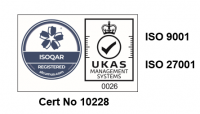

← Return to the United Reformed Church minisite
This page details guidance relating to the online, paper and PVG application process for ministers and AALPs. If you are attempting to locate guidance for church or synod applications please see the relevant sections as detailed below:
- the online application process – churches and synods
- the paper application process – churches and synods
- the PVG process – churches and synods
Running checks on ministers and assembly accredited lay preachers in England and Wales
All checks for ministers and assembly accredited lay preachers are handled by the URC Ministries Office and should not be requested by church or synod Verifiers. These include ministerial candidates, ministers in training and retired ministers who are still deemed to be active. Ministers will need to arrange for their identity documents to be seen by a document checker who is another URC minister. Similar arrangements apply to assembly accredited lay preachers.
Further information about checks on ministers and assembly accredited lay preachers is available on the URC website.
The online process
The process will follow the general 6 steps as outlined below.
Step 1: Request the minister or AALP.
To start the process off the URC ministries office will enter the basic contact details of the minister or AALP (name/email address/telephone number) onto the simple online request form for the Ministries Account. An email will be sent to the minister or AALP from the URC Ministries Office alerting them to the fact that a DBS check is required and that DDC will be in contact. The URC Ministries Office will choose from a list of job roles pre-loaded to the system which will decide the type/level of check to use. Pressing ‘submit’ will send an email to the minister or AALP from DDC with their log in details for the DDC system..
Step 2: Minister or AALP completes the form.
The minister or AALP will receive an email from DDC, with log-in details to their online form. Form information will be completed and the minister or AALP will need to nominate the documents they want to use, that meet the DBS requirements for checking identity.
Step 3: Minister or AALP nominates their document checker.
The minister or AALP will contact an active URC minister to make arrangements for their identity documents to be checked and contact the URC ministries office with the minister’s name (please ask their permission first) and the ministries office will add that person as a document checker. DDC will send the document checker their own login and password.
Step 4: Check the minister or AALP’s identity documents.
The minister or AALP will produce their original ID documents to their named Document Checker, who can log-in to verify them. This is an easy process with the online system asking a series of multiple choice questions to make sure all the information has been entered correctly. There is plenty of guidance on screen on how to check an ID document so Document Checkers feel supported all the way through.
Step 5: Submit.
Press submit; it’s that easy! Once all the documents have been checked a submit button will appear which allows the Document Checker to send all the information securely through to DDC. They will do the rest of the work to send it to the DBS and track it to ensure they return it as soon as possible.
Step 6: Wait for the disclosure certificate.
The DBS will post the disclosure certificate to the minister or AALP. DDC will email the Ministries Office once the process is finished, to let them know that the Certificate has been issued and that it is on its way to the applicant.
The paper process
The process will follow the general 5 steps as outlined below.
Step 1: Request the minister or AALP.
To start the process off the ministries office will enter the basic contact details of the minister or AALP (name/address/telephone number) which they can enter onto the simple online request form for the Ministries Account. They will then choose Send Paper Form. They will also choose from a list of job roles pre-loaded to the system which will decide the type/level of check to use. Pressing ‘submit’ will send a notification to DDC to start the process. DDC will post a pack to the minister.
Step 2: Minister or AALP completes the form.
The minister or AALP will complete the required documentation
Step 3: Minister or AALP nominates their document checker.
The minister or AALP will contact an active URC minister to make arrangements for their identity documents to be checked and contact the Ministries office with the minister’s name (please ask their permission first) and the ministries office will add that person as a document checker.
Step 4: Check the minister or AALP’s identity documents.
The minister or AALP will produce their original ID documents to their named Document Checker, who will check that those identity documents relate to the minister or AALP, represent a true likeness, are valid and fit for purpose
Step 5: Submit.
Send all forms and copies of the identity documents to DDC Ltd in the envelope provided. DDC will do the rest of the work to send it to the DBS, and track it to ensure they return it as soon as possible.
Running a check on ministers in Scotland
The PVG process
The Protection of Vulnerable Groups (PVG) Scheme applies to ministers working or volunteering in Scotland.
The United Reformed Church will submit an application for ministers carrying out Regulated Work within the church, to ensure that they ‘register an interest’ in that applicant. This means that should that applicant become ‘considered for barring’ in the future, the church would be notified by Disclosure Scotland.
Unfortunately Disclosure Scotland do not yet have an online submission facility for PVG checks so ministers in Scotland will still need to use the paper based process of application.
Requesting a PVG check online
The DDC online request system and the decision on which of the two forms will be required will be completed by the URC Ministries Office. By answering some simple questions, the system will be able to determine which paper forms DDC will be posting to the minister, directly to the home address as entered. This will also determine the information that DDC will be asking the minister or AALP to produce, to enable the submission of the application to Disclosure Scotland.





